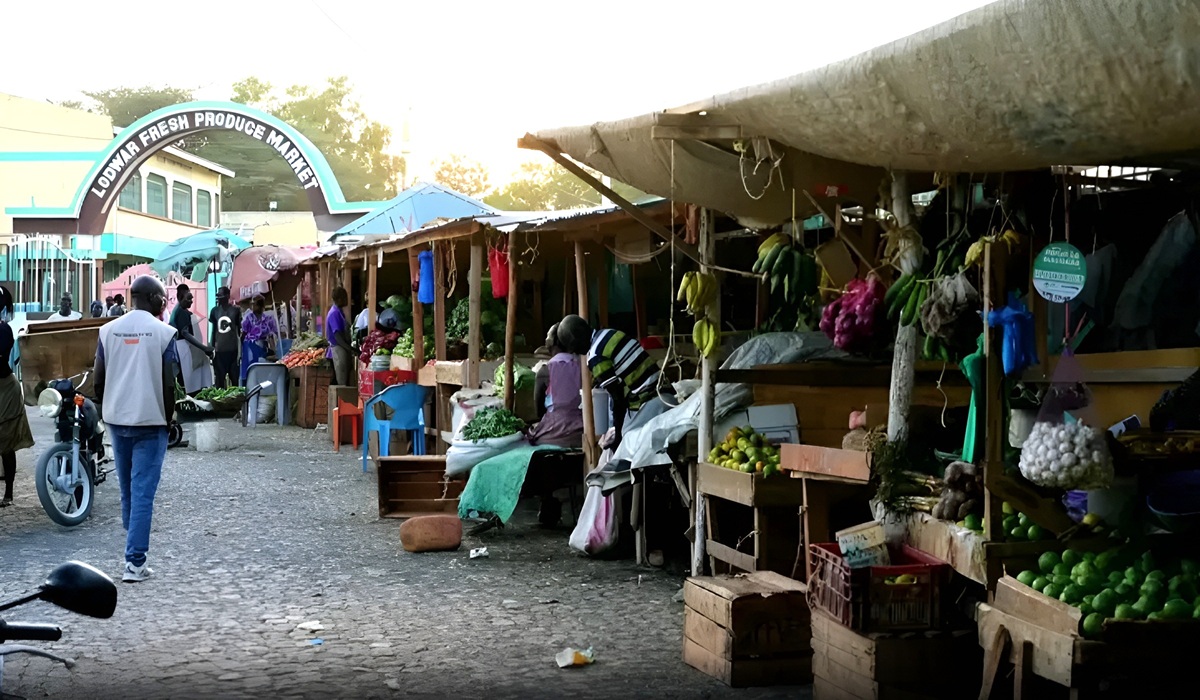Embracing Ordo Amoris: A Canadian Perspective
By Anne Thompson
Ordo amoris, Latin for “the order of love,” originates from St. Augustine’s philosophical writings. It delves into the proper alignment of our loves and affections. Augustine suggested that all things have a rightful place in the hierarchy of love, and true harmony is achieved when we love each according to its proper value.
This concept isn’t merely about prioritising those closest to us above others. Instead, it’s about recognising the inherent worth in everyone and everything, loving all appropriately, and ensuring that our affections are not misdirected or disordered. Ordo amoris doesn’t require us to choose between our local and global loves; rather, it invites us to harmonise them, extending love universally—even to those we’ve never met—while understanding how to balance that with our immediate responsibilities.
The idea encompasses self-sacrifice and sustainable self-care. It acknowledges that while we may be called to sacrifice for others, we must also care for ourselves to continue contributing positively to the world around us. It’s a delicate balance between giving of oneself and maintaining one’s well-being.
Aligning with the Canadian Perspective
This universal interpretation of ordo amoris resonates with the Canadian ethos. Canadians often embody a love that extends beyond borders, cultures, and familiar faces. Just as ordo amoris encourages loving all appropriately without necessitating a choice between local and global loves, we hold a sense of belonging to a global community, understanding that our actions and affections impact not just those nearby but people around the world.
Canada’s Innate Global Consciousness
While the world is just beginning to “touch fingertips,” coming to terms with our newfound closeness, Canadians have long been extending a wholehearted handshake. In prehistoric times, when people couldn’t stand living with their relatives anymore—due to squabbles, running out of room, or just plain boredom—they moved away, putting distance between themselves and interpersonal tensions. There was always new land to settle, a fresh start somewhere else.
But today, there’s no uncharted territory left on Earth. We are realizing that we can’t simply move away from our problems or from each other. In this interconnected world, we have to face the complexities of interpersonal relationships head-on. Canada has embraced this reality from the beginning, fostering relationships and understanding across the globe rather than seeking separation.
Thinking and Acting Both Locally and Globally
In Canada, thinking globally while acting locally isn’t just a motto—it’s a way of life. We recognise that our local actions contribute to global outcomes. By embracing a dual perspective, we understand that caring for our immediate communities doesn’t conflict with loving the wider world; in fact, they complement each other.
Our sustainable practices, commitment to multiculturalism, and efforts in peacekeeping reflect this harmonious balance. We act locally with an awareness of the global effects, and we engage globally with an appreciation of local impacts. It’s about seeing the world as an interconnected tapestry where each thread matters.
Contrasting with JD Vance’s Interpretation
JD Vance, in his articulation of ordo amoris, emphasizes a hierarchy where local obligations take precedence over global ones. He suggests that our primary responsibilities lie with those closest to us—our families, friends, and local communities. This perspective leans toward an insular approach, proposing that by strengthening our immediate surroundings, we inherently fulfill our moral duties.
While there’s undeniable value in nurturing our local ties, this interpretation can imply that our capacity for empathy and responsibility is limited, potentially diminishing our concern for distant others. However, ordo amoris doesn’t necessitate choosing between local and global loves but encourages us to love all appropriately. It invites us to recognize the inherent worth in every individual, whether they’re our next-door neighbor or someone halfway across the globe.
The Canadian perspective embodies this inclusive understanding. We believe that it’s possible—and indeed essential—to love and care for those close to us while also extending that love universally. Acting locally doesn’t exclude acting globally; rather, it’s a means of expressing global love through local action. By embracing both local and global responsibilities harmoniously, we fulfill the true essence of ordo amoris—loving all appropriately and recognizing our shared humanity.
Canada’s Responsibility to Lead by Example
Given our history and global outlook, Canada holds a unique position to lead by example. We’ve been instrumental in establishing international institutions like the United Nations and contributing to global justice through bodies like the International Criminal Court.
Our commitment to truth and reconciliation with Indigenous peoples reflects an acknowledgment of past wrongs and a dedication to healing and justice—principles that resonate universally. By addressing these issues at home, we set a precedent for confronting difficult truths and working towards equitable solutions.
Moreover, we must continually assess how our actions align with our values on the international stage. This includes adhering strictly to international laws, ensuring our industries and exports don’t contribute to conflicts or injustices abroad. It’s about taking proactive measures to uphold human rights and promote peace.
Our commitment to global engagement is also evident in how we’ve responded to international crises. Take, for instance, Canada’s approach to the Syrian refugee crisis. In 2015 and 2016, Canada welcomed over 25,000 Syrian refugees. This national effort wasn’t just a federal initiative—it mobilized local communities across the country.
From large cities to small towns, Canadians opened their doors and hearts, offering support ranging from housing and employment opportunities to language classes and cultural integration programs. This collective action strengthened our local communities by fostering inclusivity, compassion, and cultural enrichment, while simultaneously addressing a pressing global humanitarian need.
This response exemplifies how acting globally doesn’t detract from local well-being; instead, it enhances it. By embracing newcomers, communities experienced growth, diversification, and strengthened social bonds. It’s a tangible example of how Canada fulfills ordo amoris—loving all appropriately by extending care to those in dire need while enriching our own society.
Empowering the Canadian Reader
So, what does this mean for each of us as Canadians? It’s an invitation to embrace our roles as both local and global citizens fully. We’re encouraged to:
- Extend Universal Love: Recognise that our compassion isn’t limited to those we know but extends to all humanity. This could involve supporting international humanitarian efforts or simply being mindful of how our choices affect others globally.
- Balance Self-Sacrifice with Self-Care: Understand that while contributing to the greater good may require personal sacrifices, maintaining our well-being is crucial to sustaining these efforts. Self-care enables us to continue supporting others effectively.
- Engage in Conscious Action: Whether it’s buying from ethical sources, participating in community initiatives, or advocating for justice, our actions make a difference. Not viewing local and global responsibilities as competing interests, means every choice becomes an opportunity to align our lives with the principles of ordo amoris.
A Call to Embrace the Order of Love
In a world where we’re increasingly aware of our interconnectedness, embracing the true essence of ordo amoris is more important than ever. Canada’s longstanding perspective offers a guiding light—a demonstration of how to love universally while caring deeply for our immediate communities.
By aligning our affections and responsibilities rightly, we foster harmony within ourselves and the world at large. Ordo amoris assures us that we don’t have to choose between loving our immediate community and loving the wider world; we can do both appropriately and meaningfully. It’s about recognising that loving others and loving ourselves aren’t mutually exclusive but are parts of a greater whole.
As Canadians, we stand at a unique crossroads where our actions can ripple across the globe. Let’s seize this opportunity to lead by example—extending our compassion beyond borders while nurturing the roots at home. Each of us has the power to weave our thread into the global tapestry, contributing to a more compassionate and just world.
So, I invite you to reflect: How will you embody ordo amoris in your own life? What steps can you take today to harmonize your local commitments with your global responsibilities?
By taking conscious actions, no matter how small, we collectively move towards a future where love and responsibility know no bounds. Let’s continue to think globally, act locally, and embrace the order of love that binds us all.








